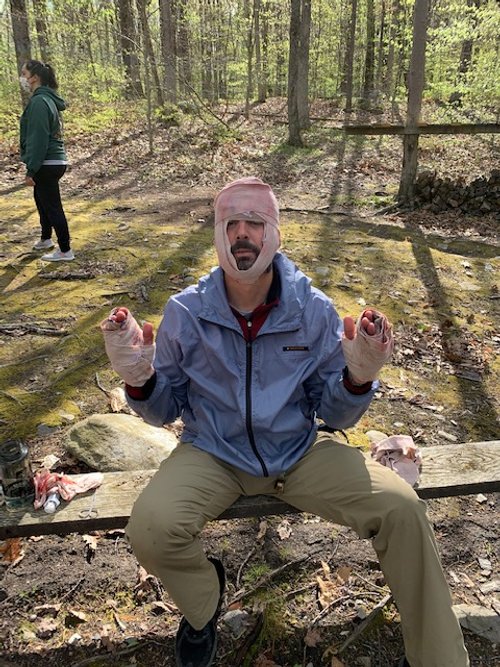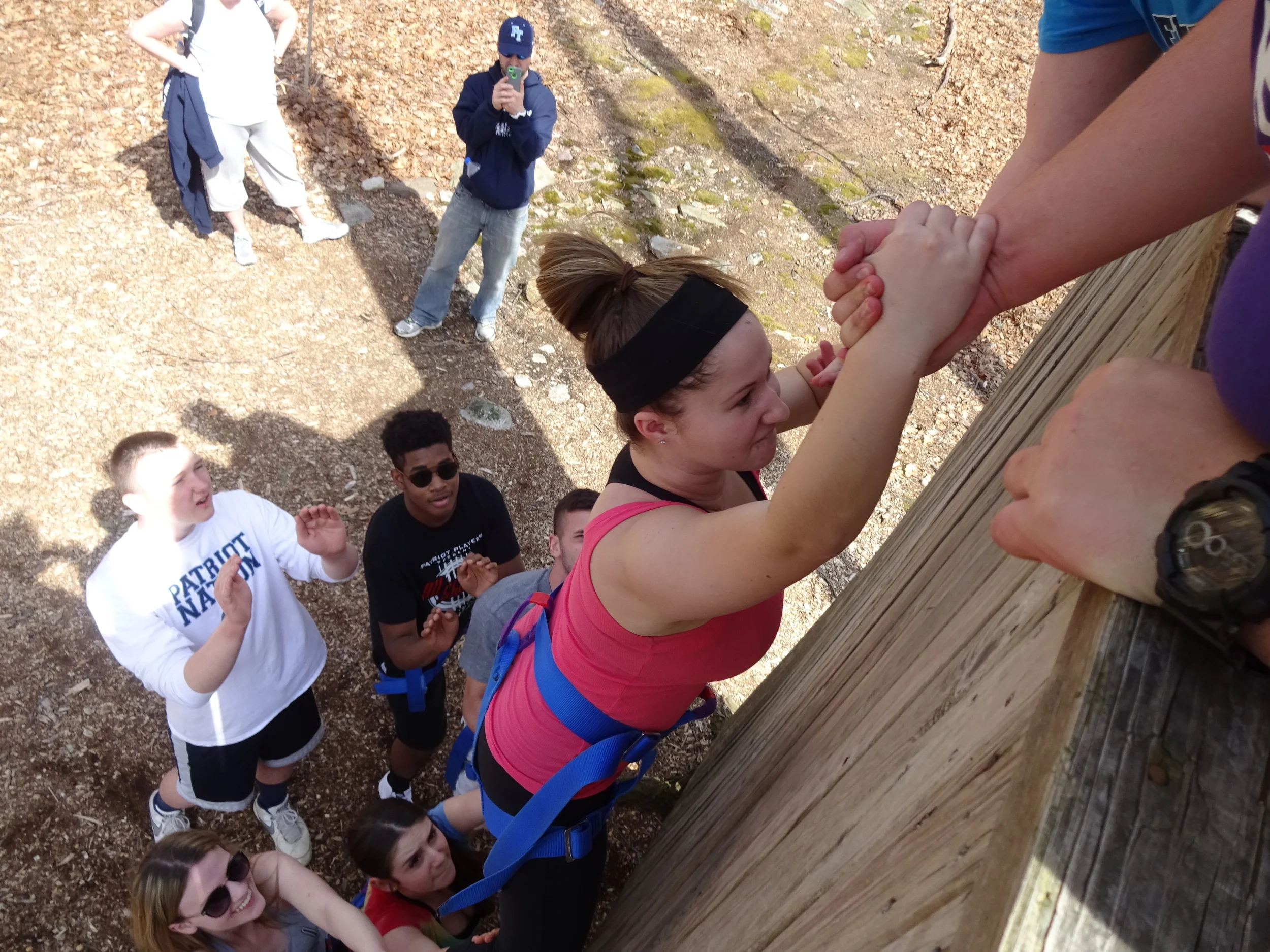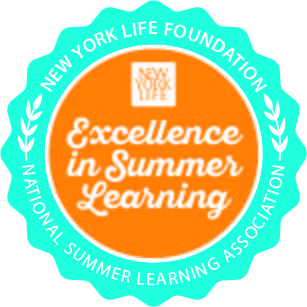Princeton-Blairstown Center's History of Inclusion Starts with Frank Broderick Class of 1943
/Founded in 1908 as the Princeton Summer Camp, the Princeton-Blairstown Center was an all-white male student led organization under the auspices of the Student Christian Association of Princeton University. The founding came at a time when Princeton University was all white, all male, and far more religious.
Front Row, Left to Right: Bill Larsen '41, Lou Kendall '41, Director Ben Duffy '41, Thorp Goodfellow '41, Cliff Jones '42; Back Row: Clipper Cleaver '41, Nick Katzenbach '43, Frank Broderick '43.
From Daily Princetonian Volume 66, Number 134, 27 October 1941 — Page 4
In 1946, the Princeton Summer Camp became one of the first camps in the country to integrate. This was due in large part to one man, Frank Broderick. A Princeton graduate from the Class of 1943, Frank Broderick worked at the Princeton Summer Camp prior to WWII in 1941 and also served as the editor of the Daily Princetonian.
In “Debating Race at Princeton in the 1940s, Part I: Francis L. Broderick ’43” April Armstrong and Dan Link write that Frank, as editor of the Daily Princetonian, challenged Princeton University’s admission policy by drawing parallels with white supremacy and Nazi racism through a series of front-page editorials entitled, “White Supremacy at Princeton.” He also used his position as the “On the Campus” editor for the Princeton Alumni Weekly to report on issues of social justice at Princeton that sparked new debates in the publication’s letters to the editor.
After graduation, Frank joined the Army Air Corps and served as a navigator in a B-24 bomber. He returned to Princeton as a graduate student after the war and resumed his campaign for integration. Armstrong and Link note that although several black students had “come to Princeton during the Navy’s wartime V-12 program and stayed on as civilians to complete their degrees, the University did not change its stance on integration.”
Frank took his fight to the Princeton Summer Camp when he served as the student director during the summer of 1946 and made it possible for the first African-American campers to attend Blairstown.
Princeton Summer Camp 1940s. Historical Photograph Collection, Campus Life Series.
Dr. Robert Rivers, Jr., from the Witherspoon-Jackson neighborhood of Princeton, was one of the first African Americans to attend the Princeton Summer Camp. In a 2016 article for the Community News, Dr. Rivers writes:
“Although the camp for boys had been in operation for many years, African-American youngsters always had been excluded. Frank Broderick appealed to his university advisers to allow a small group of black youngsters from town to attend the camp as a ‘social experiment,’ and the advisers agreed. I happened to be one of the eight youngsters who arrived at the camp that sunny day in August. The camp’s African-American chef kept an eye on the situation, and anyone who seriously anticipated trouble must have been relieved and surprised. The ‘experiment’ benefited all campers, and it resulted in a very positive learning experience for Princeton students and Princeton’s administration. The experience also became a defining moment for a 14-year-old African American. I began to think seriously about personal possibilities at Princeton University.”
Over the past thirty years, the Princeton-Blairstown Center has demonstrated its commitment to diverse leadership even when diverse voices were not readily heard in the outdoor education community by including women, BIPOC, and LGBTQI+ Board and staff leaders. Its first non-Princeton University alumnus to serve as executive director was a woman, Jennie Curtis from 1989-1993. Jennie was followed by Hendricks Davis from 1993-2004, Wardell Robinson-Moore from 2006-2013, and Pam Gregory 2013-present. The Center has elected a number of Board Chairs including three people of color – Andre Washington, Janet Smith Dickerson, and Chris Van Buren and numerous women including its current Board Chair, Claudia Franco Kelly.
Blairstown staff - June 2021.
Today more than 60% of the groups the Center serves each year are from historically marginalized communities while 100% of the Center’s Summer Bridge students are from historically marginalized communities. Over the past decade, our year-round staff (7% - 33% BIPOC), summer staff (46% - 88% BIPOC) and seasonal staff (20%-90% BIPOC) has become more diverse and inclusive, including more people of color, women, and LGBTQI+/GNC.
One of the Center’s core values includes a deep commitment to social justice. This has always been at the forefront of the Center’s mission and values. In the most recent strategic framework, the Board and senior leaders have focused one of its overarching priorities on providing access and equity to transformative outdoor experiences, leading the Center to develop a DEI curriculum anchored in the premise of justice-oriented community. It addresses issues of culture, identity, agency, belonging, and engagement explored as expressions of the five core SEL competencies and a comprehensive environmental education curriculum that includes an environmental and food justice focus.
We’ve come a long way since our first summer in 1908. As we grow and evolve, our Board and staff continue to reaffirm our commitment to stand up to racism and injustice and to help create a more equitable world for the children of today and tomorrow. Our staff and Board are dedicated to continuing to listen, learn, and examine issues of racism and identity as we challenge the status quo.
























